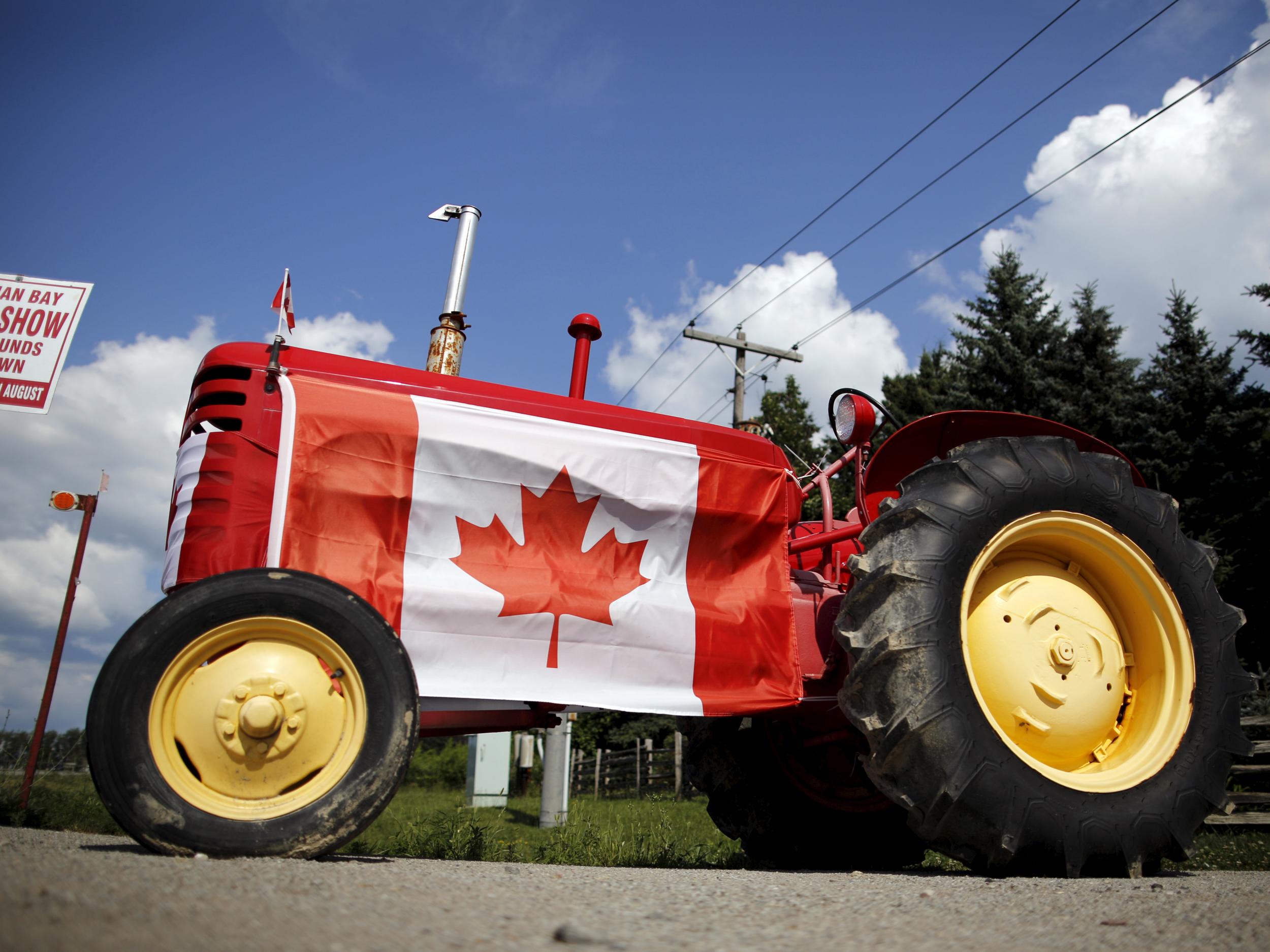Donald Trump says he's not scared of a trade war with Canada

Your support helps us to tell the story
From reproductive rights to climate change to Big Tech, The Independent is on the ground when the story is developing. Whether it's investigating the financials of Elon Musk's pro-Trump PAC or producing our latest documentary, 'The A Word', which shines a light on the American women fighting for reproductive rights, we know how important it is to parse out the facts from the messaging.
At such a critical moment in US history, we need reporters on the ground. Your donation allows us to keep sending journalists to speak to both sides of the story.
The Independent is trusted by Americans across the entire political spectrum. And unlike many other quality news outlets, we choose not to lock Americans out of our reporting and analysis with paywalls. We believe quality journalism should be available to everyone, paid for by those who can afford it.
Your support makes all the difference.President Donald Trump has said he does not fear a trade war with Canada, despite an intensifying dispute between the two countries.
“They have a tremendous surplus with the United States, whenever they have a surplus I have no fear,” Mr Trump said during a White House meeting with farmers. “We have massive trade deficits, so when we're the country with trade deficits, we have no fear.”
Earlier, while signing an Executive Order promoting agriculture and rural prosperity in US Mr Trump said Canada had “outsmarted” the US for a long time but his administration is “not going to put up with it.”
Mr Trump has been railing against Canada's decision to change its policy on pricing domestic milk to cover more dairy ingredients, leading to lower prices for products, including ultra-filtered milk.
His administration has also moved to impose a 20 per cent tariff on softwood lumber entering the US from Canada. He said that he was not worried about sparking a trade war with Canada but added it has “outsmarted our politicians for many years.”
For their part, Canadian officials - including Prime Minister Justin Trudeau - have said they will fight back against US tariffs on softwood lumber and win again, noting that international trade authorities have always ruled in its favour in the long dispute.
Ottawa will consider all options, including a World Trade Organisation (WTO) or Natfa challenge, and help companies and workers who lose their jobs because of the move by the US.
“We have prevailed in the past and we will do so again,” Natural Resources Minister Jim Carr told a news conference. “In ruling after ruling since 1983, international tribunals have disproved the unfounded subsidy and injury allegations from the US industry,” Mr Carr said.
US Commerce Secretary Wilbur Ross called Canada a close ally, but said that did not mean Canadians do not have to play by the rules. Mr Ross said that while no immediate further actions against Canada are being contemplated, the trade disputes point to the need to renegotiate Nafta sooner rather than later.
The two countries and Mexico are also preparing to renegotiate the 23-year-old North American Free Trade Agreement.
While the currency fell, shares in Canadian lumber companies rose as the level of the new tariffs came in at the low end of what investors were expecting.
Speaking to a technology company in Ontario, Mr Trudeau said he would defend the national interest.
“Standing up for Canada's interests is what my job is, whether it's softwood or software,” Mr Trudeau said, prompting applause and cheers.
While Mr Carr said he was confident the two countries could come to an agreement on softwood lumber, he said Ottawa would make a “renewed effort” to expand exports to other markets, particularly China, with aggressive marketing.
While Canadian officials shrugged off the US offensive on softwood lumber and recent attacks by Trump on Canadian dairy exports as typical negotiation tactic, others urged Canada to get tougher.
“In Canada, the perception is that we're always very nice. But we can't get trampled by this guy (Trump),” said Jerry Dias, president of the Unifor union that represents more than 20,000 forestry workers across Canada.
“This is going to have a devastating impact on certain communities,” he added. According to Unifor, 600 communities in Canada are dependent on forestry.
Reuters
Join our commenting forum
Join thought-provoking conversations, follow other Independent readers and see their replies
Comments